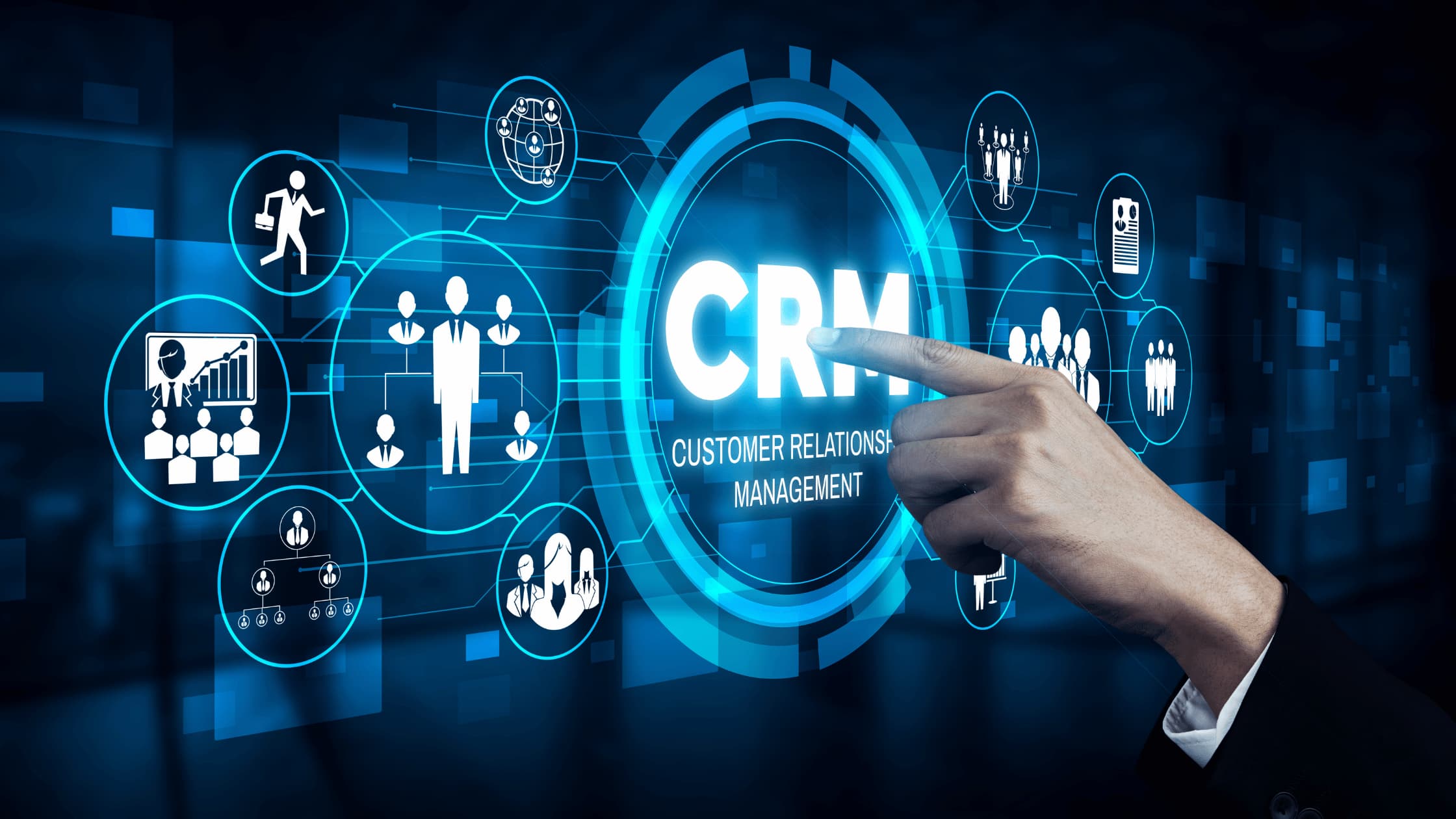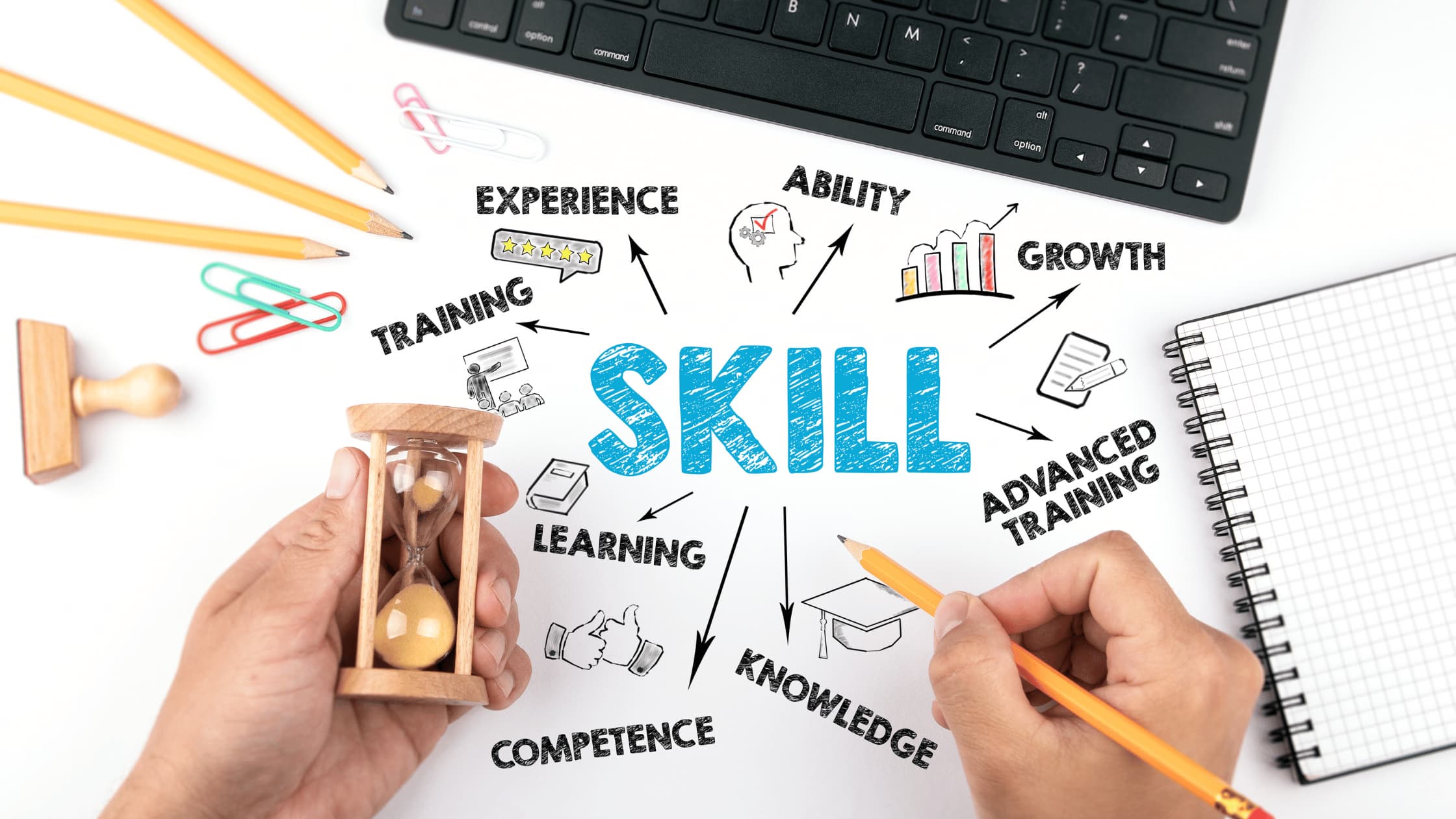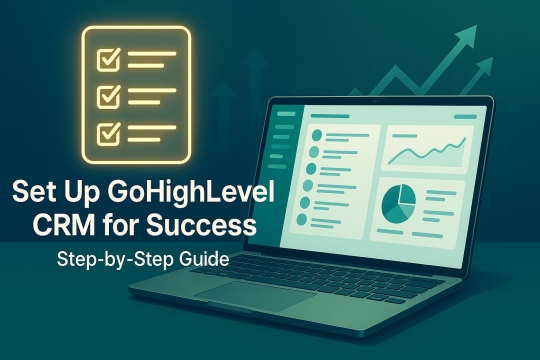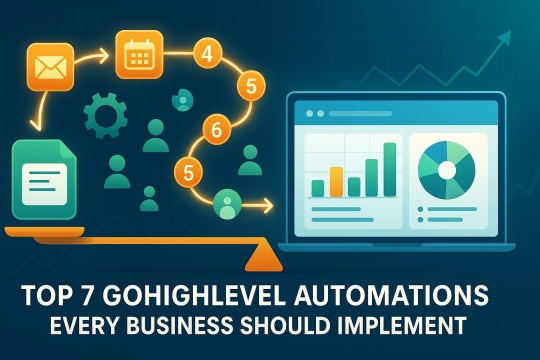
CRMs are the answer to how modern businesses manage client and customer data, nurture relationships, prioritize hot leads, and build brand loyalty. Still, anyone who has spent time working with CRM software can attest to the time-consuming nature of navigating, implementing, optimizing, and maintaining a reliable CRM. That’s where a CRM consultant enters the picture.
What is the Role of a CRM Consultant?
A CRM consultant is a CRM expert—they specialize in everything related to CRMs. They understand the CRM market, which software will better suit specific industries or businesses. Beyond assessing software options, CRM consultants can facilitate the implementation, organization, and training of employees.
Critically, CRM consultants will optimize your CRM software to leverage its full functionalities and configure it so that your CRM system provides the maximum value possible. A consultant's role is partly technical and partly strategic, with a significant portion focused on user training and post-implementation support.
Broadly speaking, A CRM consultant assists with:
- Advising on available CRM solutions according to your needs and area of business activity.
- Facilitate or oversee the implementation and setup of the CRM.
- Offer hands-on training and support for sales, marketing, and customer service teams throughout implementation and after.
Key Responsibilities of a CRM Consultant
1. Understanding Your Business Needs and Barriers
A good CRM consultant will start by taking the time to understand what you and your business are about. That's the first and most important step. Next, they'll want to review the current sales processes and identify the tools already in place.
After an initial interview, most CRM consultants will proceed to a more in-depth diagnostic assessment of your existing setup. They'll conduct a thorough assessment, looking for inefficiencies and gaps, as well as interview your team to understand the issues people are experiencing and what needs improvement.
Subsequently, devise a diagnostic on stronger workflows and the CRM features that are necessary to support the business and its growth.
This process can take time and involve stakeholder interviews, thorough analyses of pipeline reports, and mapping customer lifecycle interactions from first contact to final sale to gain a comprehensive view. The end goal and result should be a streamlined workflow that automates monotonous tasks, eliminates manual work, significantly reduces the likelihood of human error, and strengthens and centralizes customer data.
2. CRM System Implementation and Setup

Once you've chosen a new CRM system to use, a consultant will move on to the technical side of deployment, from system configuration to data migration and integration. This includes mapping existing data, removing outdated entries, and setting role-based access across your team to maintain best CRM security practices.
They will work with your team to design and build custom fields, automate workflows, and configure the CRM so it integrates with your current infrastructure (whichever accounting software, project management systems, marketing automation platforms, etc., you're using).
3. Data Management and Analysis
A CRM consultant ensures customer data is accurate, clean, and easy to work with. They establish data entry rules and conventions for your team to follow, enabling you to maintain accurate records, prevent errors, and enhance business operations.
They can set up dashboards and assist with accurate forecasting models, allowing managers to track sales activities in real-time and spot performance issues early.
4. User Training and Adoption
Technology is only as effective as the team that uses it. CRM consultants and CRM consultancy firms can deliver hands-on training tailored to your employee groups. They'll demonstrate the overall functionalities and system navigation, address logging calls, updating lead statuses, and tracking client interactions in ways that make sense for your team and business.
Depending on which solution you opt for, a consultant may be able to set up gamification strategies—like leaderboards for logged activities—to encourage your most competitive salespeople. Post-launch, CRM consultants will monitor how the CRM is working for your business, and most offer ongoing support or make adjustments to workflows if requested.
5. Ongoing Support and Optimization
Beyond initial setup, the majority of CRM consultants will offer ongoing support to ensure the CRM is performing as expected and meeting your needs, while also addressing any previous inefficiencies. Oftentimes, fine-tuning is needed, or adjustments with automation, adding new modules, updating the CRM strategy in response to market changes, and so forth.
For fast-growing companies, this can mean integrating new sales channels, onboarding additional sales personnel, or introducing AI-driven lead scoring to enhance conversion rates.
Key Skills of a Successful CRM Consultant
As tools and technology evolve, certain key skills continue to define top-performing senior consultants. A balance of technical expertise, common sense, people skills, and patience to ensure your CRM integrates seamlessly, providing maximum operational efficiency and satisfaction for your team.

Technical Proficiency
CRM consultants should have a comprehensive understanding of the CRM software landscape, including its operations, configuration, and the ability to properly integrate the tool with other applications. A solid grasp of data management, data privacy best practices, and compliance. Additionally, configuring reporting and analytics to generate actionable insights and support data-driven decision-making, etc.
Strong Analytical Skills
A consultant should be able to interpret CRM data, spot trends, and translate them into actionable insights. This is crucial for improving sales forecasting, identifying profitable customer segments, and optimizing business operations.
Interpersonal Communication
Because they often run client meetings and train salespeople, a CRM consultant should communicate clearly and effectively. Their job is to explain technical concepts in plain language and adapt their teaching to different clients and learning styles.
Problem-Solving Mindset
Unexpected challenges are the expectation when it comes to CRM implementation. Incomplete data, employee resistance to change, and other obstacles are all part and parcel of being a CRM consultant. This is why CRM consulting requires the ability to think on your feet and outside of the box.
- New to CRMs and don’t know where to start?
- Stuck with a broken setup that someone else botched?
- Tried the DIY route but know it’s not working the way it should?
At PointsPeak, we help businesses:
- Choose the right CRM for their needs
- Clean up and rebuild messy, underperforming setups
- Fix automation issues that cost you leads and sales
- Build scalable, conversion-focused systems that grow with you
The CRM Consulting Process Step-by-Step
Working with a CRM consultant usually follows a structured approach. While each project is unique, most consulting services include the following 6 phases:
- Discovery and Diagnostic Assessment – The consultant evaluates business processes, interviews staff, and reviews your CRM system to identify barriers, gaps, and opportunities.
- CRM Strategy Development – Based on assessment findings, a proposed CRM strategy will be presented. The proposal should align with the business objectives and goals previously discussed.
- CRM Selection – The proposal may recommend a CRM platform. Notable tools include HubSpot, Pulse, and ActiveCampaign. The proposal will clearly explain why the particular CRM is a suitable fit for the organization’s needs.
- Implementation Process – After a CRM system is chosen, CRM consultants proceed to set up and configure the system, data migration from spreadsheets or older platforms, and set role-based controls and accessibility.
- Training and User Adoption – CRM Consultants and consulting firms typically provide hands-on training sessions to help staff become comfortable with the new CRM solution.
- Ongoing Support – Following the software launch, most consultants provide ongoing support, including optimization, troubleshooting, and strategic planning for future enhancements.
How Consultants Solve Common CRM Challenges
Common challenges CRM consultants face include:
1. Low User Adoption
Challenge: Teams often stick to outdated tools like Excel because they may be reluctant to change, averse to newer technology, or simply don’t see the value a CRM would bring to their workflow. Human interference and misuse are among the primary reasons CRM projects fail.
Solution: Consultants provide tailored, comprehensive training that highlights the benefits directly impacting each role. They can implement phased rollouts to prevent teams from being overwhelmed. They also set up quick-win features—such as automated task reminders—so users immediately see the benefits of working with a CRM.
2. Data Quality Control Issues
Challenge: If data entered into the software is incomplete, inconsistent, or dated, this makes the system inherently unreliable for reporting and forecasting, leading to possible misinformed decisions and lost opportunities.
Solution: Consultants clean and normalize data before migration, and set clear data validation rules to filter out poor data from entering the system. They may also integrate the CRM with data enrichment tools to keep records automatically up-to-date, with little oversight required.
3. CRM System Integration Failures
Challenge: The CRM isn't communicating effectively with other business applications and tools, causing duplicate data or gaps in information.
Solution: Consultants map out all CRM system integration points and identify the necessary middleware or APIs to ensure seamless data flow. They can run tests before full deployment to check that the real-world application functions as intended.
4. Security Concerns
Challenge: Sensitive customer data may be exposed to unauthorized access or system breaches, particularly in industries with strict compliance requirements or confidential information.
Solution: Consultants set up role-based access controls across your entire organization, enable multi-factor authentication, and encrypt data both at rest and in transit. They train employees on best security best to reduce human error—a common cause of breaches.
5. Over-Customization
Challenge: Sometimes, less is more. Businesses that get carried away and request too many custom features too quickly can result in a CRM that is overly complex and difficult for some users to use proficiently.
Solution: Consultants guide companies toward starting with core functionality first. After adding features and additional tools, it is up to each business and its preferences. Nevertheless, the 'function-first' approach keeps CRM systems user-friendly and avoids costly rebuilds later on.
6. Lack of Clear Objectives
Challenge: Without clearly defined goals, CRM projects often lose focus and momentum, and can become a wasted investment or sunk cost.
Solution: Consultants work with leadership to set measurable objectives—this should include concrete, measurable goals. For example, reducing lead response time by 30% or improving forecast accuracy by 20%. CRM consultants will also configure the CRM to track progress against these KPIs.
By identifying potential pitfalls early and proactively implementing strategies to resolve them, CRM consultants see that the CRM delivers on its promise of enhancing business operations, strengthening customer relationships, and driving continual growth and expansion.
How CRM Consultants Provide Value
A CRM consultant’s role extends beyond setup and offering specialized expertise in CRM software. They understand workflow processes, optimization, and data management at a foundational level. Invariably, it will depend on the particular consultant you work with and their level of experience; that said, junior CRM consultants should not be underestimated.

- Improved Customer Engagement – With all customer interactions in one place, sales and service teams are positioned to respond in a timely manner on a consistent basis. A consultant might set up automated follow-up reminders for high-value clients to prevent opportunities from slipping through the cracks.
- Increased Sales Efficiency – By aligning CRM workflows with the sales cycle, consultants can eliminate redundancies and save time and resources. Automating quote generation, for example, can reduce proposal turnaround time from days to hours, thereby boosting win rates in record time.
- Better Customer Management – Every email, call, interaction, and meeting is logged and traceable, giving teams the full context before the next client meeting. This continuity in information enhances employee performance and preparedness, equipping your team with the tools to secure deals and strengthen customer relationships.
- Ensuring Data Security – Consultants ensure compliance with industry regulations by setting role-based access controls and encryption for sensitive customer data. This not only reduces security risks but also builds customer confidence.
- Competitive Edge Through Insights – By utilizing CRM analytics to identify trends and predict customer behavior, consultants enable companies to make data-driven decisions before competitors have a chance to react.
When to Hire a CRM Consultant
Consider hiring CRM consulting services if:
- Your system can’t keep up with business growth, causing continual delays in regular work tasks.
- You’re implementing a new CRM and need expert guidance to avoid costly mistakes.
- Your pipeline is inconsistent, with deals slipping through due to poor follow-up or tracking.
- You are currently not using a CRM system, and data is scattered across Excel spreadsheets or multiple platforms, making it difficult to obtain a comprehensive view of customer activity.
- You’re concerned about protecting your data and ensuring compliance with GDPR or HIPAA.
Delaying the decision can lead to lost sales opportunities, frustrated teams, and inaccurate reporting. On the other hand, working with a skilled consultant early can prevent wasted CRM investment and ensure the system delivers long-term value.
If you’re thinking, “There’s probably a better way to do this…” — you’re probably right.
Contact PointsPeak to Get Started
A CRM consultant ensures your CRM investment delivers measurable results—from improved customer engagement and better client management to stronger data security and forecasting. Whether working through consulting firms or independently, their blend of strategic planning, technical skills, and training expertise turns a CRM into a powerful growth tool.
If your CRM isn’t delivering, the right consultant can help you transform it from a database into a driver of sustainable business success. Contact PointsPeak to learn more about CRMs and how to improve your business.


